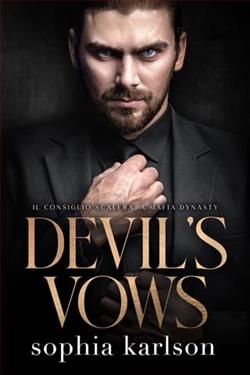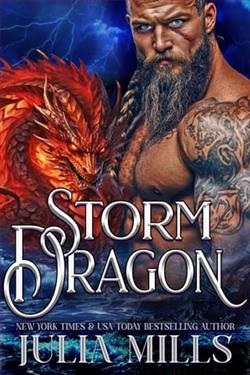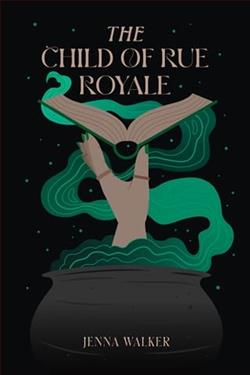Page 167 of Just One Year (Just One Day 2)
It’s a funny thing, because I think that my mother and I may finally be speaking the same language. But somehow, now words don’t seem as necessary.
Forty-six
I hang up the phone with Yael, feeling as though someone has opened a window and let the air in. This is how it is with traveling. One day, it all seems hopeless, lost. And then you take a train or get a phone call, and there’s a whole new map of options opening up. Petra, the play, it had seemed like something, but maybe it was just the latest place the wind blew me. And now it’s blowing back to India. Back to my mother. Where I belong.
I’m still holding the envelope of photos. Once again, I forgot to ask Yael about them. I look at the one of Saba and mystery girl and realize now why she looked familiar to me the first time I saw her. With her dark hair and playful smile and bobbed hair, she looks quite a bit like Louise Brooks, this . . . I grab the newspaper clipping . . . this Olga Szabo. Who was she? Saba’s girlfriend? Was she Saba’s one that got away?
I’m not quite sure what to do with them now. The safest thing would be to put them back in the attic, but that feels a little like imprisoning them. I could make copies of them and take the originals with me, but they still might get lost.
I stare at the picture of Saba. I flip to one of Yael. I think of the impossible life those two had together because Saba loved her so much and tried so hard to keep her safe. I’m not sure it’s possible to simultaneously love something and keep it safe. Loving someone is such an inherently dangerous act. And yet, love, that’s where safety lives.
I wonder if Saba understood this. After all, he’s the one who always said: The truth and its opposite are flip sides of the same coin.
Forty-seven
It’s half past four. I’m not due to meet Linus until six for a quick tech run through before the curtain. Out in the lounge, I hear Broodje and the boys. I don’t want to face them. I can’t imagine telling them I’m going back to India in three days.
I leave my phone on the bed and slip out the door, saying good-bye to the boys. Broodje gives me such a mournful look. “Do you even want us to go tonight?” he asks.
I don’t. Not really. But I can’t be that cruel. Not to him. “Sure,” I lie.
Downstairs, I bump into my neighbor Mrs. Van Der Meer, who’s on her way out to walk her dog. “Looks like we’re getting some sun finally,” she tells me.
“Great,” I say, though this is one time I’d prefer rain. People will stay away in the rain.
But, sure enough, the sun is fighting its way through the stubborn cloud cover. I make my way over to the little park across the street. I’m almost through the gates when I hear someone calling my name. I keep going. There are a thousand Willems. But the name gets louder. And then it yells in English. “Willem, is that you?”
>That one line. It cracks open his facade. It reveals what’s underneath. Rosalind sees Orlando. He sees her. That’s the whole play, right there.
I feel the lines like I haven’t before, like I’m truly understanding Shakespeare’s intentions. I feel as if there really was a Rosalind and an Orlando and I’m here to represent them. It isn’t acting in a play. It goes back further than that. It’s much bigger than me.
“Ten-minute break,” Linus calls at the end of Act One. Everyone heads out for a smoke or a coffee. But I am reluctant to leave the stage.
“Willem,” Petra calls to me. “A word.”
She’s smiling, which she rarely does, and at first I read it for pleasure, because isn’t that what a smile communicates?
The theater empties out. It’s just the two of us now. Not even Linus. “I want to tell you how impressed I am,” she begins.
Inside I’m a little boy grinning on a birthday morning, about to get the presents. But I try to keep my face professional.
“With so little experience, to know the language so well. We were taken with your ease with the language at your audition, but this . . .” She smiles again, only now I notice that it looks a bit like a dog baring its fangs. “And the blocking, you have it cold. Linus tells me that you even learned some of the fight choreography.”
“I observed,” I tell her. “I paid attention.”
“Excellent. That’s just what you needed to do.” And there’s that smile again. Only now do I begin to doubt it reflects any pleasure. “I spoke to Jeroen today,” she continues.
I don’t say anything but my gut twists. All this, and now Jeroen is going to lumber back with his cast.
“He’s terribly embarrassed by what happened, but most of all he’s disappointed to have let down his company.”
“There’s no one to blame. He was in an accident,” I say.
“Yes. Of course. An accident. And he very much wants to be back for the last two weeks of the season and we will do our best to adapt to meet his needs, because that is what you do when you are part of a cast. Do you understand?”
I nod, even though I don’t really understand what she’s on about.
“I understand what you were trying to do up there with your Orlando.”















